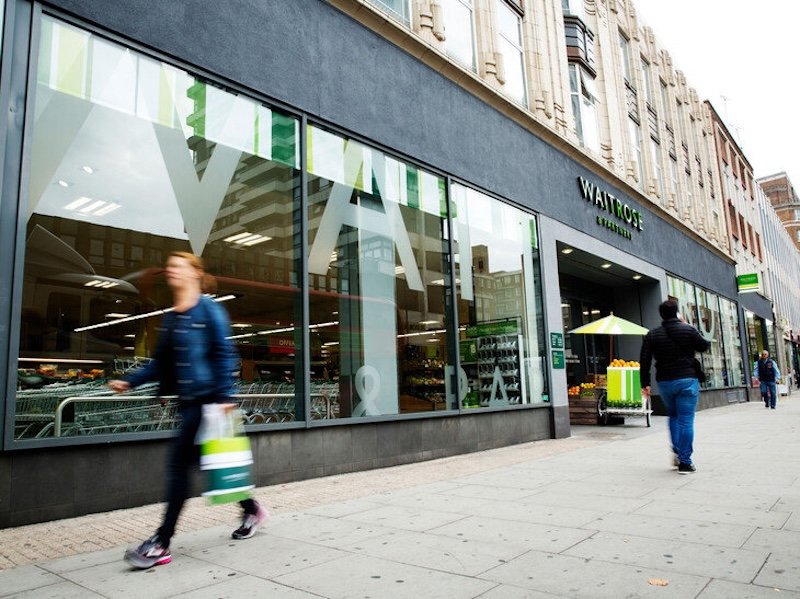Unlocking growth: how anonymous options can increase customer trust and drive sales
In today’s digital age, online retailers are constantly looking for ways to enhance the customer experience, build trust, and ultimately, drive sales. One powerful yet often overlooked strategy is offering anonymous options for customers during their online shopping experience.
While anonymity might seem counterintuitive in an era where personalised marketing and customer data play crucial roles, providing customers with the ability to shop anonymously can unlock significant growth opportunities.
The Growing Demand for Privacy
With the constant headlines about data breaches and the misuse of personal information, privacy has become a primary concern for consumers. According to a recent study, 79% of consumers are concerned about how companies handle their personal data.
This growing apprehension is especially evident in the realm of online shopping, where customers are asked to share sensitive information such as addresses, phone numbers, and payment details. For many, this intrusion of privacy feels like a necessary trade-off for convenience, but it also leaves them vulnerable to potential data misuse.
As a result, offering anonymous shopping options is becoming an increasingly attractive proposition for customers. When a retailer provides the option to shop without requiring full personal information, customers are more likely to trust the brand. This is particularly appealing for people who are cautious about sharing their information online or who simply value their privacy.
Enhancing Trust Through Anonymity
Trust is the foundation of any successful retail relationship. Without it, customers are hesitant to make purchases, share their personal information, or return for future shopping experiences. Anonymous options can significantly enhance trust, as they show that a retailer values its customer's privacy and is not trying to take advantage of their data.
The most common form of anonymous shopping is through guest checkout options, where customers are not required to create an account or input their personal details to make a purchase. By allowing customers to complete transactions without the need to share sensitive data, retailers signal to shoppers that their privacy is respected. This can have a psychological impact on potential customers, as they feel more secure and confident in their shopping experience.
This trend of offering anonymity is already widespread in certain industries. For instance, online casinos offering no-KYC (Know Your Customer) gaming platforms allow players to make deposits and withdraw winnings without submitting personal identification or undergoing the lengthy verification processes typical of traditional online gambling sites. These no KYC casinos prioritise user privacy, attracting players who are wary of sharing personal information online. The ability to remain anonymous boosts trust in these platforms, ensuring a more seamless and less invasive gaming experience.
Additionally, some customers may prefer to shop anonymously for temporary or one-time purchases. For example, someone buying a gift for a friend may not want to create an account or save payment information on a retailer’s website. Providing an anonymous checkout option not only increases convenience but also caters to this specific need, encouraging customers to make spontaneous purchases.
Lowering Barriers to Purchase
In many cases, requiring customers to sign up for an account or provide detailed personal information can create unnecessary friction in the shopping process. The longer the checkout process, the higher the likelihood that a customer will abandon their cart. In fact, according to a study by Baymard Institute, 26% of online shoppers abandon their carts if a site asks them to create an account.
By offering anonymous shopping options, retailers can streamline the purchase process, making it quicker and easier for customers to complete their transactions. This not only reduces the chances of cart abandonment but also improves the overall customer experience. The less time a customer spends entering personal details or setting up an account, the more likely they are to make a purchase. For retailers, this translates into higher conversion rates and an increase in sales.
The cryptocurrency industry provides another example of the success of anonymous transactions. Cryptocurrency exchanges such as Binance and Kraken have integrated options where users can make transactions and purchases without sharing extensive personal details, often allowing for a much quicker and more anonymous shopping or trading experience. Many users prefer these platforms because they don't require personal identification for smaller transactions, providing anonymity in a space where privacy concerns are paramount.
Building Long-Term Loyalty Through Privacy
While offering anonymous options may attract one time shoppers, the real potential for growth lies in building long-term loyalty. Consumers who feel their privacy is respected are more likely to return to a brand that offers such options, increasing the likelihood of repeat business. Anonymity fosters a sense of control, allowing customers to feel more comfortable with their transactions.
Moreover, even if a retailer offers anonymous options, there are still ways to personalise the shopping experience without infringing on privacy. For example, retailers can utilise cookie-based tracking to remember a customer’s preferences, cart items, or previously viewed products without storing personal data. This allows retailers to provide recommendations and targeted marketing in a way that doesn't compromise customer privacy.
Additionally, revenue-boosting loyalty programmes can be structured in a way that rewards customers without requiring them to sign up for an account. For instance, anonymous shoppers could still accrue points or discounts through a unique purchase code or email confirmation. This way, customers can enjoy the benefits of loyalty rewards without feeling obligated to create an account or disclose personal details.































Continue reading…